The 2012 SUTS Blogathon: White Heat – A Character Assassination
 How do I love White Heat? Let me count the ways.
How do I love White Heat? Let me count the ways.
The unforgettable performance by James Cagney. The awesome lines. Raoul Walsh’s taut direction. The Max Steiner score. The explosive (if you will) ending. But most of all, I love the engrossing, fully realized characters, each offering a distinct set of needs, desires, idiosyncracies, and motivations.
In a nutshell, White Heat (1949) tells the story of Cody Jarrett (James Cagney), a psychopathic mob boss who suffers from migrane headaches and a mother complex. His inner circle includes his mother, Ma Jarrett (Margaret Wycherly), his wife, Verna (Virginia Mayo), who is having an affair with his head henchman, Big Ed (Steve Cochran), and Hank Fallon (Edmond O’Brien), a cop who becomes Cody’s confidante when he goes undercover as Cody’s prison cellmate. The film’s rather straightforward plot takes us through Cody’s masterminding of a daring daytime mail train robbery, his crafty decision to confess to committing a minor crime that took place at the same time (thereby earning only a brief, two-year stretch), the death of his mother that prompts his escape from prison, and the circumstances that lead to his ultimate destruction.
Throughout the film’s action, it’s the characters that make it so watchable and captivating. Here’s a peek inside the some of the fascinating personages who populated White Heat and made it come alive. (Watch out for spoilers!)
Cody Jarrett (James Cagney)
When we first meet Cody, he and his henchmen are carrying out the train heist. Cody’s first lines give us a hint of the kind of man we’re dealing with. He asks one of his men if he knows what to do, but Cody is too wired, too impatient, too intense to wait for the answer: “All right – just do it,” he says, cutting the man off in mid-sentence. “Stop the gabbin’.” A short time later, Cody commits a pair of murders – two of the engineers on the train (“You’ve got a good memory for names,” he tells one of the men before he shoots him. “Too good.”). This scene reveals Cody’s ruthlessness and complete disregard for the lives of others – the only pursuit of happiness he’s concerned about is his own – and his mother’s.
Ah, Cody and his mother. We learn that his mother is, according to one character, “the only person he has ever cared about or trusted.” Not even his wife, Verna, is allowed that privilege. Ma Jarrett travels with Cody everywhere (beside him, in the front seat, incidentally, while his wife rides in the back): “Where Ma goes,” we’re told, “Cody goes.” We also find out that, as a child, Cody faked headaches in order to gain his mother’s attention, and as he grew up, the phony ailments turned into the real thing – blinding, disabling migranes that only his mother can soothe. And finally – perhaps most importantly — we discover that there is insanity in Cody’s family; his father died in an institution. This ain’t your garden variety hood.
Favorite scene:
There are so many to enjoy – the one where Cody goes berserk in prison when he’s told that his mother is dead – you’ll have to see it to believe it. And when he finds out that the man he regarded like a “kid brother” is actually a cop. But my favorite comes shortly after Cody’s successful escape from prison, which he has carried out with a “passenger” in the getaway car trunk – Roy Parker (Paul Guilfoyle), an inmate who nearly killed Cody, accidentally on purpose. It was Parker’s bad luck that he failed. Departing with his gang from the house where they’d holed up after the escape, Cody filches a chicken leg from a bag of provisions and, munching on the chicken, suddenly remembers Parker in the trunk. “How ya doin’, Parker?” Cody asks amiably, standing behind the car. The man inside mumbles incoherently. “Oh, stuffy, huh? I’ll give ya a little air!” And with that, Cody empties his gun into the trunk, then strolls away, still chewing on his tasty snack.
Favorite quote:
I love Cody’s response when he finds out that his buddy, his ace, his “like family” cellmate is actually an undercover officer of the law: “A copper. A copper. How do ya like that, boys? A copper. And his name is Fallon. And we went for it. I went for it. Treated him like a kid brother. And I was going to split 50-50 with a copper.”
Ma Jarrett (Margaret Wycherly)
Cody’s mother is the very picture of devotion. Loving, supportive, encouraging and protective, she was her son’s biggest fan – just as proud of his successful criminal exploits as she would’ve been had he brought home a Pulitzer Prize or scored the winning touchdown. Take the scene where Cody shares his idea for turning himself in for a state-level crime that he didn’t commit. After he explains his rationale for the scheme, Ma Jarrett beams widely and gushes, “You’re the smartest there is, Cody.”
Like the stereotypical mother-in-law, Ma Jarrett wasn’t exactly fond of her son’s wife, Verna. She makes this clear after Cody tells the women about the aforementioned plan. Verna grouses about being left alone: “What about me? What do I do for the next two years?” And without missing a beat – or even bothering to turn in Verna’s direction, Ma Jarrett derisively rejoins, “Same thing you did before he married you.” (I’m not exactly sure what that was supposed to mean, but nevertheless – zing!)
Ma Jarrett also proves that Cody’s criminal smarts and ruthlessness run in the family – when her car is tailed by a trio of detectives on different streets, it takes Ma Jarrett only a matter of moments to spot them and only a few short minutes to lose them. It’s Ma Jarrett who suggests that Cody get rid of – permanently – Zuckie Hommell (Ford Rainey), a member of his crew who was badly scalded by steam during the train heist and has to be left behind. (“Suppose they find him, Cody? You know how Zuckie talks.”) And Ma Jarrett is the one who convinces Cody that the “accident” at the prison wasn’t an accident after all. Crafty, slick and fearless, Ma Jarrett was living proof that the apple doesn’t fall far from the tree.
Favorite scene:
I like the scene where Ma Jarrett visits Cody in prison and delivers the news that Verna has run off with Big Ed Somers(Steve Cochran). The scene serves to illustrate nearly every characteristic that Ma Jarrett espouses – she demonstrates maternal martyrdom when she confesses that she let Cody down by not preventing the act; concern when she sees the injury to his head, received during Roy Parker’s ineffective assassination attempt; wisdom when she warns Cody that Big Ed will be out to kill him; pride when Cody vows that he’ll “take care of” Big Ed and Verna upon his release; and fierce determination combined with mother bear-like protectiveness when she announces her intention to take care of Big Ed herself.
Favorite quote:
Before heading out to make good on her vow to find Big Ed, Ma Jarrett tells Cody: “Any time I can’t handle his kind, I’ll know I’m getting old. No one does what he’s done to you, son, and gets away with it.”
Verna Jarrett (Virginia Mayo)
“It’s your suitcase, Cody – why don’t you keep it all? Why don’t ya? You could travel. Buy things. It’s what money’s for. I’d look good in a mink coat, honey.” This, shortly following the successful train robbery, is our introduction to Cody’s wife, Verna – one of the most cold-blooded, self-absorbed, and completely captivating femmes I’ve seen in a while. She’s unabashedly greedy, as evidenced by her opening thrust. She’s callous, which she shows us when the gang leaves Zuckie behind after the train robbery – she waltzes right by the bandaged mobster, completed unmoved by his agonized pleas. She demonstrates her petulance when she gripes while preparing to take it on the lam: “What’s the use of having money if you gotta start running every time somebody sees his shadow?”
And she’s not only capable of the double cross, but also the triple cross – first, she runs away with Big Ed while Cody is in prison. Then, after learning of Cody’s prison break, she tries to ditch Big Ed, and when she’s caught by Cody, she throws Big Ed under the proverbial bus, deceitfully telling Cody that Big Ed killed Ma Jarrett by shooting her in the back. (I’ll give you three guesses who the real shooter was. And the first two don’t count.) And later, when Cody is holed up atop a gasoline tank, Verna assures police that she alone can convince Cody to come down – and she’ll do it if they’ll make a deal to “go easy” on her. “And when he comes out, you can do what you want with him,” she purrs. Unfortunately for Verna, the police aren’t buying what she’s selling, and as she’s led away, she drops her helpful citizen act, snarling “Cheap copper!”
Favorite scene:
My favorite Verna scene takes place shortly after Cody’s prison break, where she’s trying to convince Big Ed that he has a reason to fear Cody. Although Big Ed assures her that his fellow gang members – who have hightailed it out of town – will be back once his beef with Cody is settled, Verna has another theory regarding the showdown’s outcome. “You’ll be dead,” she flatly predicts. (Incidentally, in the scene, Verna is clad in the most gorgeous robin’s egg-blue outfit – turtleneck sweater, skirt, and coat with a huge fur collar – that totally adds to my enjoyment of the scene. It’s to die for!)
Favorite quote:
“It ain’t just like waiting for some human who wants to kill you. Cody ain’t human. Fill him full o’ lead and he’ll still come at ya.”
Big Ed Somers (Steve Cochran)
One look at Big Ed and you get an idea of why Verna picked him to run away with. He’s sexy, snarky, and cool. His snark rears its head in the film’s very first scene, as he and his fellow mobsters round up the employees of the train they are about to rob. Ed half walks, half drags one of the men down the corridor and unceremoniously dumps him in the sleeper car: “Conductor didn’t want to play,” he remarks. Big Ed’s also quick on the draw, as he shows us a few seconds later when one of the train employees makes a move with a thermos – in one smooth, flawless move, without blinking an eye, Big Ed shoots the unlucky gent and pulls the emergency brake to stop the train. Cold. As. Ice.
Despite his prowess with a gun, Big Ed does show a compassionate side when Zuckie Hommell is scalded by the steam from the train. Cody takes one look at the man writhing on the ground and instructs, “Come on – let’s get outta here.” But Ed, along with two of the other gang members, quickly recovers from his initial shock to help his friend. We don’t spend much time with Ed again until late in the film, after Cody’s prison break, when he’s preparing for a certain showdown with his former boss. Interestingly, he doesn’t appear to be afraid or overly worried – just practical, as he nails a bell to the door with the butt of his gun, and covers pillows in his bed to make it appear that there is a body there. In contrast to Verna’s fears, Big Ed tells her: “The time comes when a man’s got to stop running away and face things, or else go on running for good.” But don’t get me wrong – Big Ed’s no paragon of virtue; he has a nasty streak, too. More on that streak below – ‘cause we see it in my favorite Big Ed scene . . .
Favorite scene:
When Verna insists on leaving, claiming that she’ll escape to a place where Cody can’t find her, Big Ed doesn’t waste any time disavowing her of this fantasy. “The world ain’t big enough, sugar,” Big Ed tells her. “Not when he finds out what you done to his ma.” The horror on Verna’s face makes it clear that Ed hit the bullseye with his threat. And he knows it: “Feel more like stayin’ now?” (Zing number two!)
Favorite quote:
“Plug him and he drops, same as anybody else.”
White Heat airs on TCM on August 14th at 10 p.m. (EST), and this post is part of the 2012 TCM SUTS Blogathon, presented by Jill over at Sittin’ on a Backyard Fence and Michael at ScribeHard on Film. You only owe it to yourself to check out the many outstanding posts that are being offered every day, all month long, as part of this awesome event! And don’t forget to check out White Heat – I guarantee you’re going to be spellbound by the cast of characters that make this film what it is!










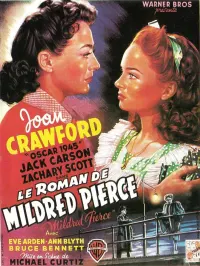




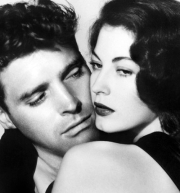
















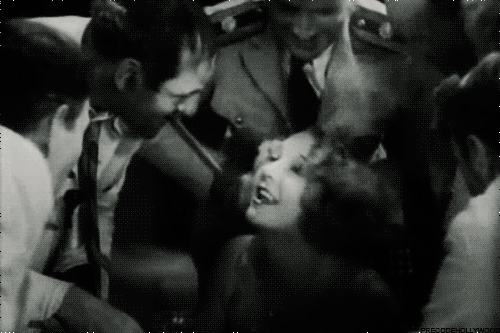


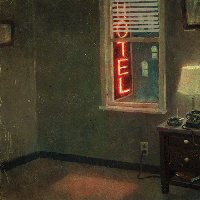
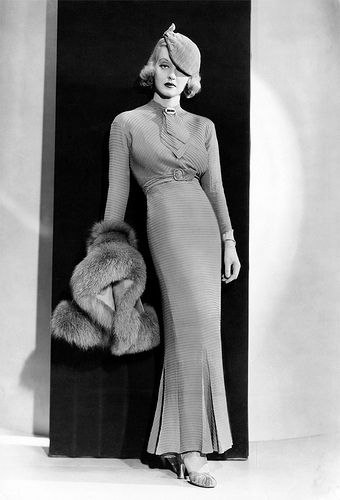



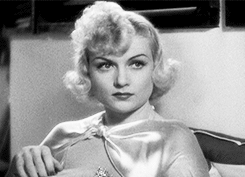
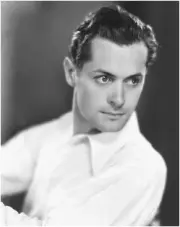
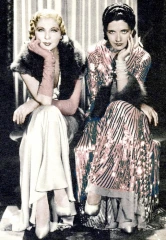

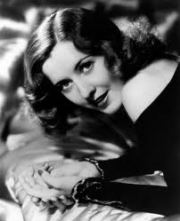



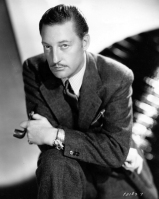




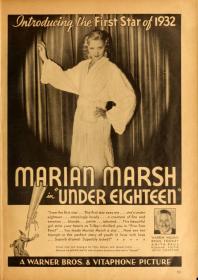
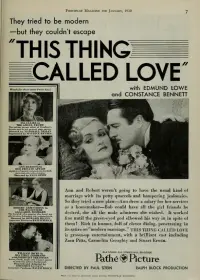

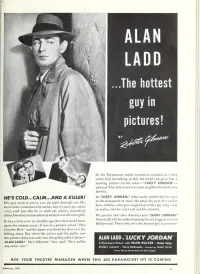
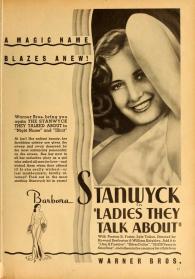

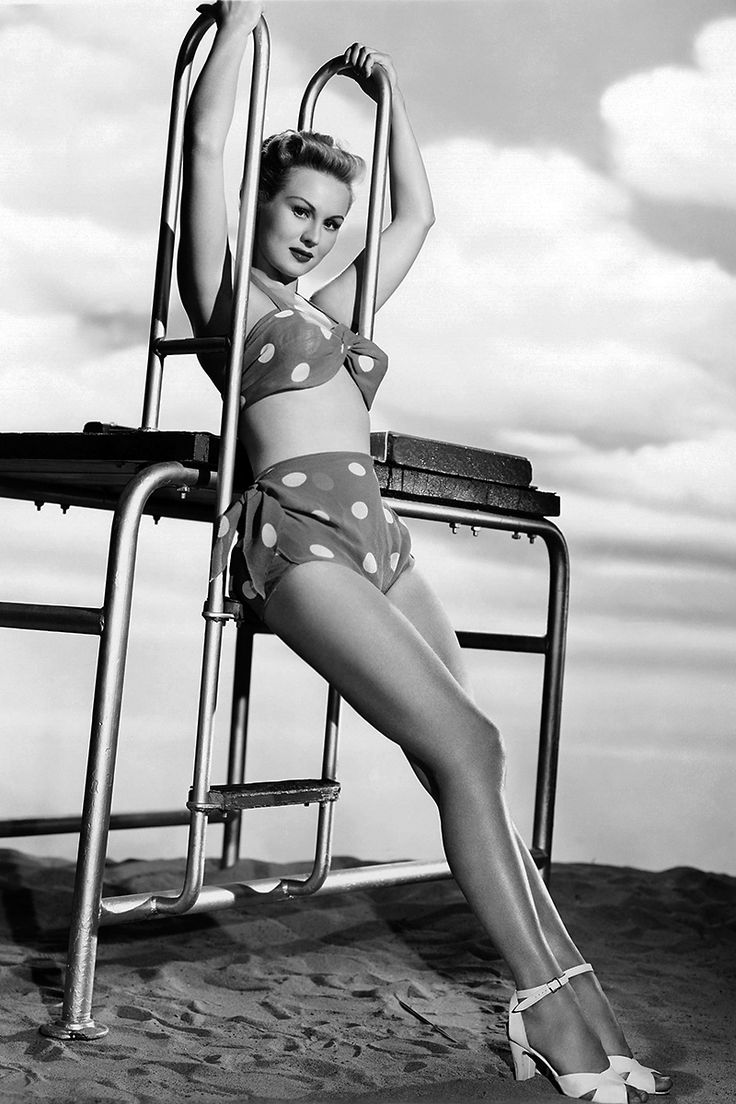



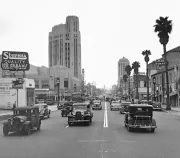
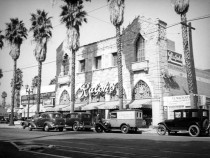


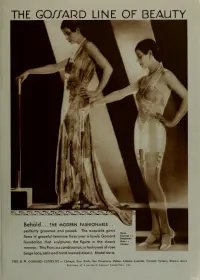

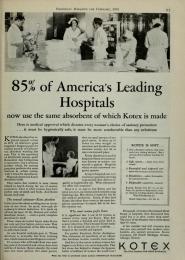

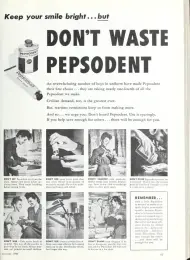


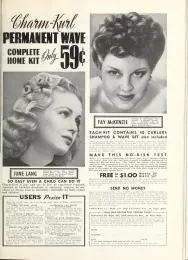





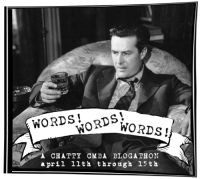

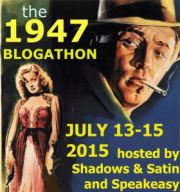
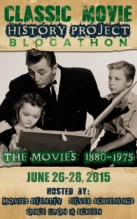
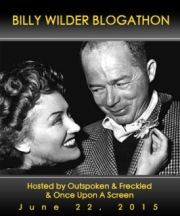


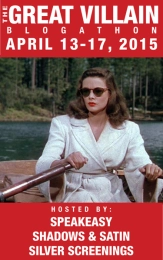


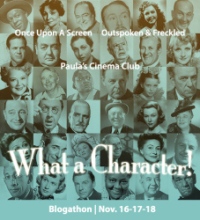



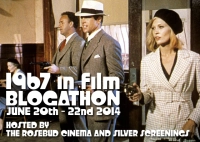


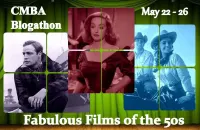
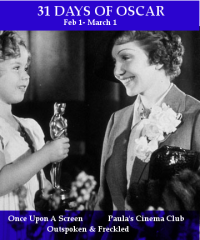
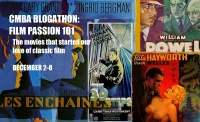







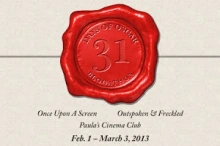

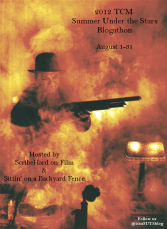


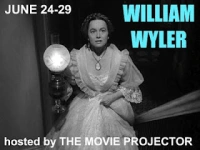





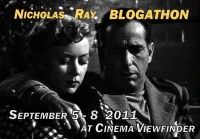

[…] Karen from Shadows and Satin makes her blogathon debut with a fantastic essay White Heat: A Character Assassination […]
2012 tcm SUTS Blogathon Day 14: James Cagney « ScribeHard On Film said this on August 14, 2012 at 5:05 am |
Great write up…love that you broke it down character by character and then included favorite lines and scenes for each. Well done.
Thanks, Joel! And I’m glad to see your blog — I’m enjoying your write-ups and have added you to my blogroll!
As I said elsewhere, next to the original “Scarface”, this is my favorite old-school gangster film, as well as my favorite Cagney performance. Along with the actors you highlight here (I never thought Mayo had much range, but within that range she was terrific, as is the case here), I also like Edmond O’Brien a lot as Fallon, providing the moral center of the movie without being too heavy-handed about it. Great write-up!
Thank you, Sean! I definitely agree about Edmond O’Brien — in fact, I’d originally included him in my post as the final character I was examining, but it was so difficult to write about him that I gave up. Unlike the other characters, there were no shades of light and dark or any fascinating quirks in his persona — he was just what he was: a good cop — dedicated, brave and intelligent. (Ho hum.) LOL!
I see you love this film as much as I do.
You’re right ,the train robbery scene sets the stage for everything else we are about to watch. After he shoots the two train engineers we know this guy is nuts. Who else but Cagney could get away with sitting in his mother’s lap and cry. Mayo and Cochran are both fabulous but everyone get overshadowed by Cagney. Great job!
Thanks, John! So funny that we keep zeroing in on the same films. You are so right about everyone being overshadowed by Cagney — you almost have to make up your mind to concentrate on the other characters, or you can so easily overlook them!
Terrific post! Glad I got to read it before watching the movie tonight. In previous viewings I never paid much attention to Verna/Mayo, but now I have moments to watch for.
Thank you so much! Before working on this post, I never gave Verna much thought as anything more than your garden variety moll. My multiple watchings, though, revealed that she was so much more — so scandalous!
[…] White Heat (1949) […]